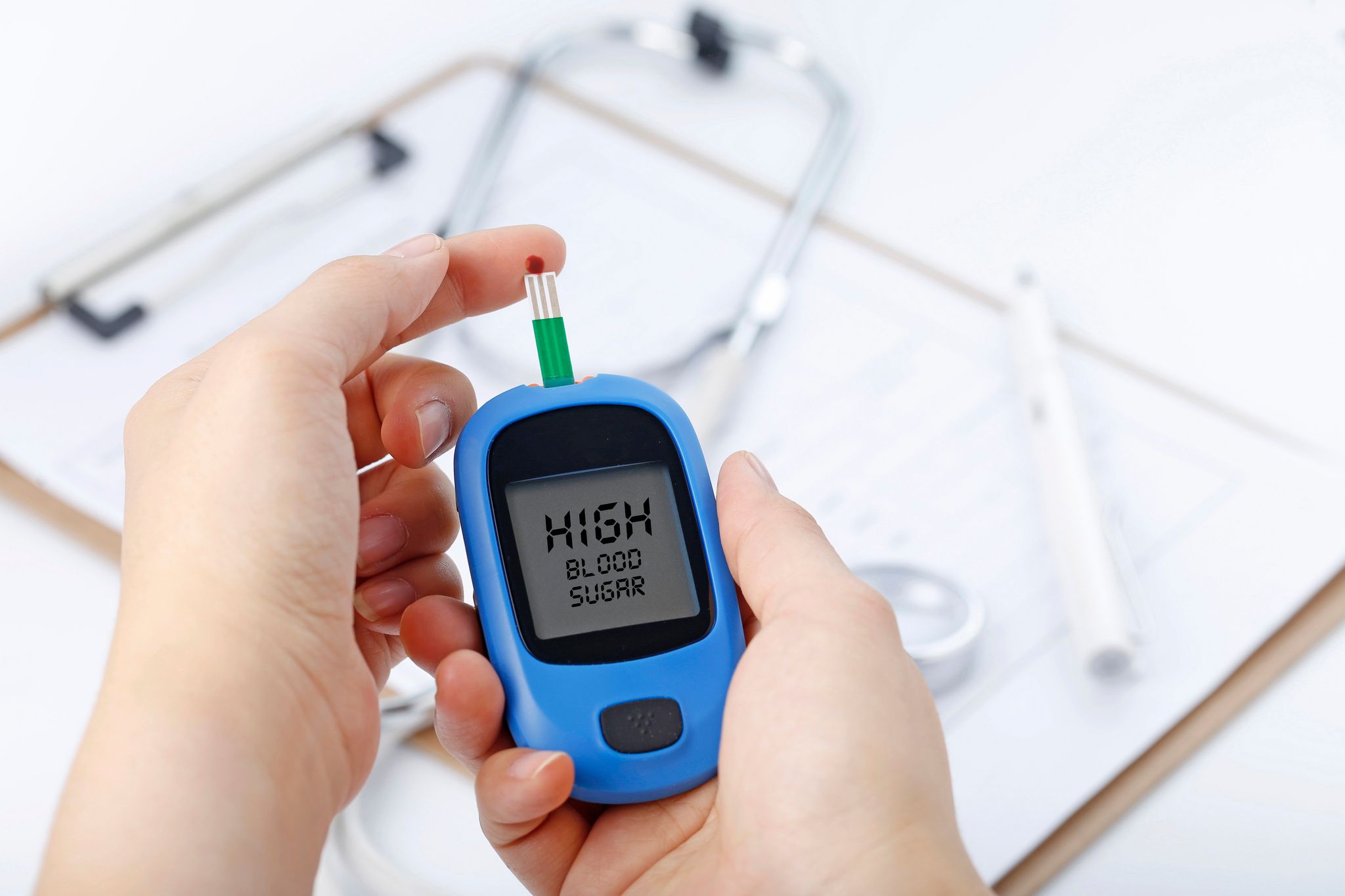Gestational diabetes – Do’s and Don’ts

Pregnancy is a time when so many untoward events arise, without breaking in any symptoms. It is better to be watchful and go for every test recommended to rule out complications early on. Gestational diabetes is one of the conditions that can develop during your pregnancy. Following a healthy lifestyle with a gestational diabetes diet plan will reduce the symptoms of gestational diabetes and lets you enjoy a healthy pregnancy.
In this article:
- What causes Gestational Diabetes?
- What are its symptoms?
- Tests and Diagnosis
- How to treat Gestational Diabetes?
- FAQs related to Gestational Diabetes
What causes Gestational diabetes?
Many women face insulin resistance in pregnancy. When your body is unable to make insulin during your pregnancy period, it results in gestational diabetes or pregnancy diabetes. Also, it can happen because of metabolic changes in your body due to pregnancy. Pregnancy bulks up more weight in your body, causing your body to use up insulin staggeringly. When your body is not using insulin at its level best, insulin resistance triggers. There is an increase in pressure in the pancreas to prepare insulin, which unfortunately results in glucose intolerance. Gestational diabetes causes your blood pressure to rise significantly which is not a good sign for you and your baby.
What are its symptoms?
While there are no stark symptoms of gestational diabetes during pregnancy, the following are the basic and most common signs of gestational diabetes.
-
Urge to urinate frequently
You will feel like visiting the loo more frequently. Insulin resistance causes an urge to urinate frequently.
-
Feeling thirsty
You will feel like drinking water more often if you are suffering from gestational diabetes during pregnancy.

-
Fatigue
While pregnancy hormones in the initial months make you weary and tired, sometimes it can be also due to gestational diabetes. It is easy to pass off as first-trimester fatigue without being aware of this condition so better to take a medical opinion if you feel extreme lethargy.
-
Nausea
Morning sickness takes a strong hold of you during pregnancy but gestational diabetes is one more reason if you are vomiting quite often.
Test and diagnosis
Gestational diabetes is detected during your second trimester to see if your sugar level is surpassing normal sugar levels in pregnancy. A glucose test during pregnancy will signify the amount of glucose in your blood when you are expecting. A gestational diabetes test is conducted by your doctor to check if you are suffering from insulin intolerance. Between 24 and 28 weeks of your pregnancy, a test to detect gestational diabetes is carried out. The key tests are the initial glucose challenge and follow-up glucose tolerance tests. In both cases, you will be asked to drink a glucose syrup solution. After one hour, blood is drawn from your body to check for gestational diabetes.

How to treat Gestational Diabetes?
Once your test results are positive, you will be asked to appear for a consultation to discuss the solution for your condition. The gestational diabetes treatment plan will have the following ingredients:
-
Manage your blood sugar levels
Systematically bring a balance to your sugar levels. Glucose levels should be in a healthy bracket so that your sugar levels are in control. Keep a watch on glucose levels by taking up a blood sugar test. Your blood sugar is linked to the foods you eat throughout the day and the fitness approach you follow to assimilate the food you eat.
-
Watch your eating habits
Maintaining a healthy range of glucose levels means a lot of tweaking your dietary habits. Your doctor will provide a personalized gestational diabetes meal plan to support your gestational diabetes condition. What kind of safe foods to eat, how much to eat, and what exercise you should follow up with will all bring a healthy balance to your gestational diabetes. Eat a healthy diet, and consider all food groups while making a meal plan so that you don’t miss out on any nutrients during pregnancy. Moderate eating should be continued till the time your sugar levels are in a goldilocks zone. Carbohydrates-rich food like vegetables, grains, and starchy foods should be consumed but in moderation. Avoid fatty foods and foods high in sugar like fruit juice, desserts, cakes, and soft drinks to keep sugar levels in control. Include lean proteins to even out your sugar levels and keep you nourished throughout the day. Avoid junk or ready-to-eat packaged foods.
-
Keep yourself active
Start a fitness routine or join a prenatal yoga class so that you are active and, on the move, regularly. Healthy eating should be backed up with a concrete fitness plan which is sustainable even after your pregnancy. Exercise plays a vital role in bringing down your sugar levels, and lessening your back pain during pregnancy, muscle cramps, and stress levels. A high amount of stress is not good for your sugar levels as your sugar levels keep fluctuating with the amount of anxiety and stress you take on your head. Have a physical wellness and mental wellness plan in place so that you enjoy a gestational diabetes-free healthy pregnancy.

-
Medications
If all of the above is not helping you to treat your gestational diabetes, medications come as a last resort. Have a word with your doctor and know your medications and their side effects on your pregnancy body. Based on your gestational diabetes severity, you might be expected to take oral medications or insulin injections to lower your sugar levels.
-
Keep a watch on your baby
All your remedies should go hand in hand with your baby’s response. Keep a close watch on what kind of response your baby is eliciting toward your medication and diet habits. Your doctor might recommend more tests/ultrasounds to check your baby’s growth.
FAQs related to Gestational Diabetes
Will my gestational diabetes wean off after pregnancy?
Gestational diabetes is a slow process. Recovery might take some time so you need to keep on monitoring your sugar levels even after delivery. Keep visiting your doctor often to check if your blood sugar level is within your required range. If your doctor is suggesting that your sugar levels are not dropping and are teetering on the edge of type 2 diabetes, you might have to go for a litany of tests. Be consistent with your healthy diet after pregnancy and avoid sugar or fatty foods. Post pregnancy confinement foods after delivery is a good approach to control and regulate your sugar levels.
What is the role of a Newmi nutritionist in treating gestational diabetes?
Newmi nutritionist or diet consultant will help you with weight management, and blood sugar management and offer a holistic approach to dealing with your gestational diabetes. Personalized healthcare is a unique proposition of Newmi. Hence, the diet consultant will sit with you, have a dedicated session to understand your body and metabolism, try to gauge what approach will be best suitable, and draft a systematic meal plan, pregnancy-friendly foods, and exercise schedule. He/she will guide you toward healthy food choices. Newmi gestational diabetes care packages assists you in controlling and monitoring sugar levels by offering kegel exercises and yoga programs, postpartum weight management and fetal growth optimization.
Leave a Comment
Blogs
Popular Posts
Get the latest from Newmi
Subscribe to get Email Updates!
Thanks for subscribe.
Your response has been recorded.
COPYRIGHT © 2025 KA HEALTHCARE PVT LTD - ALL RIGHTS RESERVED.
Disclaimer: NEWMI CARE does not cater to any medical/Pregnancy or psychiatric emergencies. If you are in a life-threatening situation, please do NOT use this site. If you are feeling suicidal, we recommend you call a suicide prevention helpline or go to your nearest hospital.

0 Comment